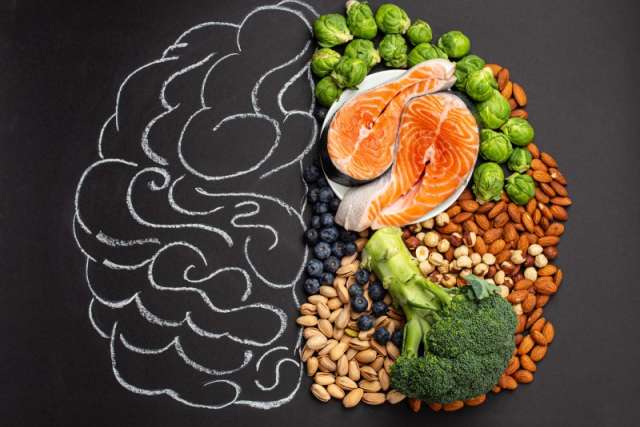In today's fast-paced world, mental health is just as important as physical. From job stress to technology overload, our minds never stop. It has been documented by the World Health Organization that over 1 in 8 individuals globally live with a mental disorder, yet many of them still silently suffer.
Whether
you're struggling with anxiety, energy crashes, emotional burnout, or simply
want to develop healthier routines for mental health — this guide offers
practical, evidence-based strategies to empower you to become a master of
mental health.
1. What
Does Mental Health Really Mean
Mental
health is your social, feeling, and thinking wellbeing. It affects the way you
think, feel, and behave. It also has an impact on the way you deal with stress,
get on with people, and make decisions.
Key
Elements of Mental Health:
Emotional
stability
Cognitive
clarity
Social
bonding
Stress
resistance
Self-worth
and meaning
Having
mental health does not mean that you never feel sad and anxious — it means that
you have the resources to bounce back.
2. Common
Mental Health Challenges People Face Today
Knowing what
the others suffer from is the first step towards healing.
A. Anxiety
Disorders
They include
Generalized Anxiety Disorder (GAD), panic attacks, social anxiety, among
others. Symptoms are:
Excessive
worrying
Racing
thoughts
Muscle
tension
Difficulty
sleeping
B.
Depression
One of the
most common diseases in the world. Symptoms are:
Persistent
sadness
Loss of
interest in daily activities
Fatigue and
sleep issues
Negative
thoughts or hopelessness
C.
Burnout
Mostly
caused by extensive work pressure, failure to relax, or emotional overload. It
manifests as:
Mental
exhaustion
Lack of
motivation
Irritability
Physical
fatigue
3.
Mind-Body Association and Mental Wellness
Physical and
mental well-being are interdependent. Unhealthy physical habits (like lack of
sleep, poor diet, and inactivity) worsen mental states.
Most
Important Examples:
Physical
exercise reduces anxiety and depression
Poor diet
increases brain fog and fatigue
Chronic
stress drains the immune system
Good deep
sleep improves memory and emotional control
4.
Actionable Strategies to Improve Your Mental Well-being
Evidence-based,
achievable strategies anyone can use are the focus of this chapter.
A.
Practice Mindfulness Every Day
Mindfulness
brings you back to the present and eases worries. Try:
5–10 minutes
deep breathing
Guided
meditation (Apps like Calm, Insight Timer)
Body scan
and grounding exercises
B.
Establish an Ordered Routine
The brain
likes routine. A regular daily pattern may steady your mood and improve
productivity.
Tips:
Wake up and
sleep at the same time daily
Schedule
breaks and self-care
Don't
overpackage your tasks
C.
Journaling for Clarity of Mind
Writing
down your thoughts can help:
Identify
causes of stress
Track
emotional patterns
Clear mental
clutter
Prompts
to try:
"Today
I feel…"
"What
am I thankful for?"
"What
is something that I need to let go of?"
D. Social
Support and Connection
You don't
have to walk alone. Positive social connections are linked with lower rates of
depression and anxiety.
Call a
friend
Join a
support group
Talk to a
therapist or counselor
E. Limit
Negative Inputs
Too much
exposure to bad news, toxic social media, or stressful environments harms your
mental health.
Limit social
app time
Unfollow
negative tweets
Choose
positive media, music, and books
5.
Nutrition and the Brain: What You Eat Affects How You Feel
Your brain
uses 20% of your calorie intake each day. What you eat greatly affects mood
control.
Mental
Health Superfoods:
Fatty fish
(Omega-3s)
Berries
(antioxidants)
Dark
chocolate (natural mood booster)
Leafy greens
(folate and fiber)
Probiotics
(gut-brain axis)
Hydration is
also important — mild dehydration can affect your mood and concentration.
6. Move
to Improve: The Power of Exercise
Exercise is
not just about being fit — it's a powerful medicine for your brain.
Benefits of
30 minutes exercise/day:
Increases
serotonin and dopamine (feel-good chemicals)
Lowers
stress hormone (cortisol)
Improves
memory and sleep
Boosts
confidence and body positivity
Start
with:
Walking
Yoga
Cycling
Dancing —
even in your bedroom!
7. Sleep
Hygiene: Sleeping Your Way to Mental Resilience
Good sleep
is crucial for emotional control, making decisions, and recovery from stress.
How to
Enhance Sleep:
Sleep and
wake up at the same time
No caffeine
after 2 PM
Shut off
screens 1 hour prior to bedtime
Get your
bedroom dark, cool, and quiet
8. When
to Seek Professional Help
Self-help is
a wonder, but other issues do need professional help. Don't be afraid to call a
licensed therapist if:
Your
symptoms continue for longer than 2 weeks
It's
affecting your work, relationships, or daily routines
You are
feeling hopeless or having suicidal thoughts
Use credible
directories like Psychology Today to find therapists near you.
9.
Building Long-Term Mental Resilience
You can't
probably remove all the stress from your life, but you can build a stronger
mind to cope with it.
Long-term
behaviors that are positive:
Journaling
gratitude
Practicing
forgiveness
Setting
boundaries
Volunteering
or helping others
Checking in
on progress at regular points
Last
Thoughts: Mental
Health Is a Process, Not a Destination
Healing
mentally isn't a Band-Aid — it's a continuous process of self-awareness, small
daily choices, and mindful decisions.
Start where
you are. Use what you have. Do what you can.
You're worth
feeling balanced, peaceful, and in control of your life.
Suggested
External Source
Learn more
about coping skills and evidence-based therapy at https://www.nami.org/ , the website of the
National Alliance on Mental Illness.


